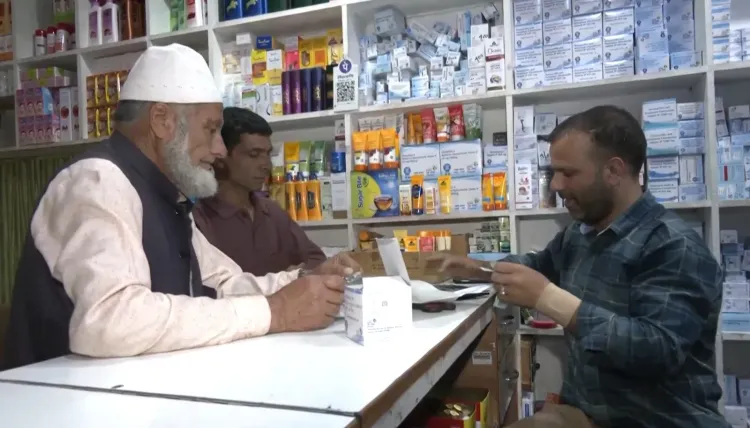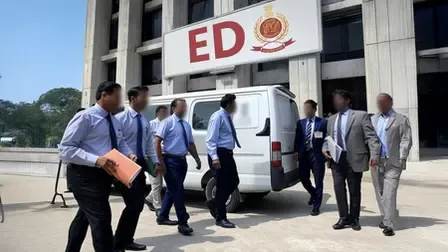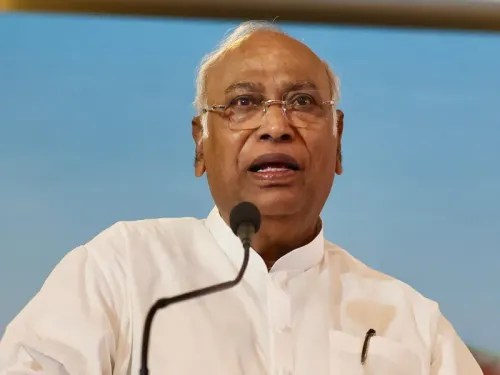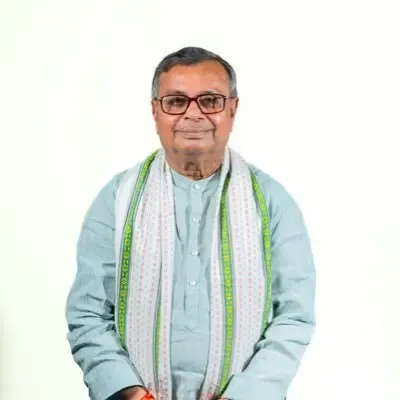How Are Jan Aushadhi Kendras Improving Access to Affordable Medicines in J&K?

Synopsis
Key Takeaways
- Jan Aushadhi Kendras provide affordable medicines to the public.
- Significant savings for patients with chronic illnesses.
- Over 300 centers in Jammu and Kashmir.
- Part of the Pradhan Mantri Bhartiya Janaushadhi Pariyojana initiative.
- Changing lives by making healthcare accessible.
Baramulla, May 11 (NationPress) The Jan Aushadhi Kendras, established under the Pradhan Mantri Bhartiya Janaushadhi Pariyojana (PM-BJP), have revolutionized access to affordable medicines for the general public, significantly altering the way individuals procure both routine and life-saving medications.
In the Baramulla district of Jammu and Kashmir, numerous families have become devoted patrons of these Kendras, moving away from private pharmacies to acquire medicines at substantially lower prices.
Several customers shared their experiences with IANS, highlighting how this government healthcare initiative has positively impacted their lives.
Mushtaq Ahmed, a user of this service, expressed that this scheme has provided great relief to individuals like himself.
“Medicines are becoming costly, and their prices are soaring. But here, we receive medicines at highly subsidized rates. This is particularly beneficial for underprivileged families,” he noted.
“We are extremely grateful to Prime Minister Narendra Modi for launching such a program,” he added.
Azizur Rahman Beig stated, “This initiative is incredibly beneficial for people from lower-income backgrounds. I am a heart patient, and the medicine I have costs Rs 100 at pharmacies, but here, I pay only Rs 10.”
“We appreciate Prime Minister Modi for this effort. More such Kendras should be established so that everyone can benefit,” he remarked.
The owner of a Jan Aushadhi Kendra shared insightful information on the transformative effects these centers are having on community health.
“The average monthly medical expenses for any heart patient are about Rs 5,000 - Rs 8,000. However, here, it ranges from Rs 1,000 to Rs 2,000. This scheme has alleviated the financial burden for many patients who struggled to afford their medications, allowing them to buy regularly,” he remarked.
Local resident Mohammed Sayeed Bhat mentioned that he has been purchasing medicines here for his diabetic grandparents for the past 2-3 months.
As part of the Pradhan Mantri Bhartiya Janaushadhi Pariyojana, a total of 15,057 Jan Aushadhi Kendras (JAKs) have been set up nationwide by February 2025, with over 300 located in Jammu and Kashmir.









